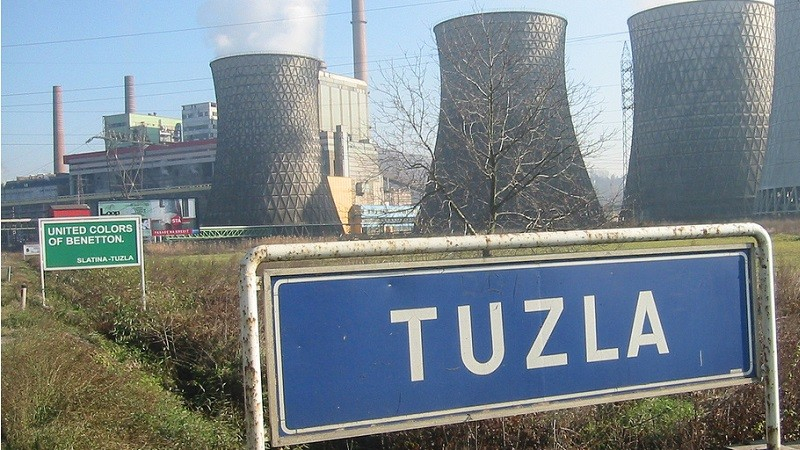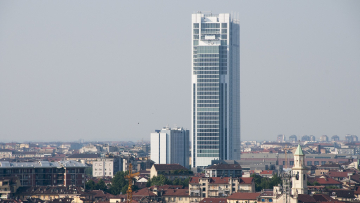Project – On record
This profile is no longer actively maintained, with the information now possibly out of dateBankTrack
Pippa Gallop, CEE BankWatch
Research coordinator
Tel: +385 99 755 97 87

Project – On record
This profile is no longer actively maintained, with the information now possibly out of dateBankTrack
Pippa Gallop, CEE BankWatch
Research coordinator
Tel: +385 99 755 97 87
Why this profile?
The planned Tuzla 7 lignite-fired power plant in Bosnia and Herzegovina would provide additional coal capacity to the already existing units in Tuzla, with adverse consequences for climate change, air pollution and human health for decades to come.
What must happen
China Exim Bank should withdraw from financing this project. No other financial institution should get involved in this dodgy deal. Banks should publicly commit to end support for new coal power stations, and produce a robust plan for phasing out support for fossil fuel projects and companies.
| Sectors | Coal Electric Power Generation |
| Location |
|
| Status |
Planning
Design
Agreement
Construction
Operation
Closure
Decommission
|
| Website | https://www.epbih.ba/eng/page/unit-7-tpp-tuzla |
Tuzla 7 is a new unit planned at the Tuzla Thermal Power Plant in Bosnia and Herzegovina. The plant is owned by Elektroprivreda Bosne i Hercegovine (Public Enterprise Electric Utility of Bosnia and Herzegovina, or Elektroprivreda BiH), a majority state-owned company.
Tuzla 7 is a 450 MW power plant that would produce 2756 GWh per year if in operation. The project backer claims the plant will replace existing units at the Tuzla Thermal Power Plant. However, the company plans to close only the existing 100 MW unit 3 before 2027 while units 4, 5 and 6 would continue to operate. As such the establishment of Tuzla 7 would create additional coal capacity.
China Gezhouba Group is the company that will construct Tuzla 7 when agreement about the project's financing is achieved. The project secured a loan of USD 732 million from the China Exim Bank, which will cover the biggest part of the project. The loan has been guaranteed by the Bosnian government, but still awaits approval from Parliament.
Social and human rights impacts
Human health WHO reports that the power plants in Tuzla have caused the loss of 4,900 years of life, 131,000 working days and 170 hospitalizations for cardiac and respiratory diseases until 2013. Expanding the power plant with another unit - causing an increase in the plant's coal capacity - will worsen these impacts.
Misleading job promises The Federation of Bosnia-Herzegovina guaranteed to preserve 3,500 jobs in the mines through constructing Tuzla 7. However, as reported by CEE Bankwatch, the number of workers has not been at this level for years. The BiH mines are the least labour efficient in the region, and hardly any are economically feasible. For these reasons, the Federation of Bosnia-Herzegovina will not be able to maintain the current number of jobs.
Environmental and climate impacts
Climate change Lignite-fired plants generate an enormous amount of CO2 emissions and thereby directly contribute to climate change. The emissions of Tuzla 7 are calculated to be at least 2,308,000 tonnes of CO2 per year. Expansion of the fossil fuel industry is not compatible with reaching the goals of the Paris Agreement.
Pollution Tuzla 7 is not designed in line with EU pollution standards. Tuzla 7 is not in line with the 2017 LCP BREF standards (Best Available Techniques Reference Document for Large Combustion Plants), which are obligatory in the EU for new plants. This means that even before the construction of Tuzla 7 has begun, the unit can already be said to be outdated.
New ash landfill site The planned construction of the Šićki Brod ash landfill facility was not included in the environmental permit that was acquired for the project. Ash dumps will contaminate water and soil, and can also be a hazard for local communities. The people living around the proposed landfill site are heavily against the plan.
The construction of the Tuzla 7 coal power plant will be financed through debt. In 2017, China Exim Bank provided the project with a loan of EUR 614 million, which covers 85% of the construction costs. In December, 2019, a banking consortium led by Slovenia's NLB Banka, including Intesa Sanpaolo and Sberbank, offered to provide a loan financing the remaining 15%.
Applicable norms and standards
2019
2019-12-02 00:00:00 | Banking consortium offers a loan for the construction of the Tuzla 7 coal power plant
CEE Bankwatch Network has reported that a banking consortium had been the only bidder to provide a EUR 74 million loan to Elektroprivreda Bosne i Hercegovine (EPBIH) to part-finance the Tuzla 7 coal plant. The consortium, led by Slovenia's NLB Banka, also includes Intesa Sanpaolo (Italy) and Sberbank (Russia). The EUR 74 million loan would cover 15% of the costs for the construction of the coal plant. The other 85% is to be provided by the China Exim Bank (Read Bankwatch Network's press release here).
2019-10-31 00:00:00 | NGOs reaction to preparatory works at Tuzla 7 coal power plant: “This plant is not ready for construction”
Preparatory works for the construction of a new 450 MW coal unit Tuzla 7 are set to start, even as numerous controversies accompany the project, including an infringement case under the Energy Community Treaty. “Tuzla 7 would sentence Bosnia and Herzegovina and its neighbours to several more decades of pollution and greenhouse gas emissions. This project reminds me of a Hans Christian Andersen’s story, The Emperor’s New Clothes. It’s high time that we finally acknowledge that the emperor is naked,” Denis Žisko of the Centre for Ecology and Energy from Tuzla said. “Europe is moving away from coal – Montenegro just recently announced it was dropping a new coal unit at Pljevlja. This is not only because of coal’s climate and health impacts but because it no longer makes economic sense.” (CEE Bankwatch network).

